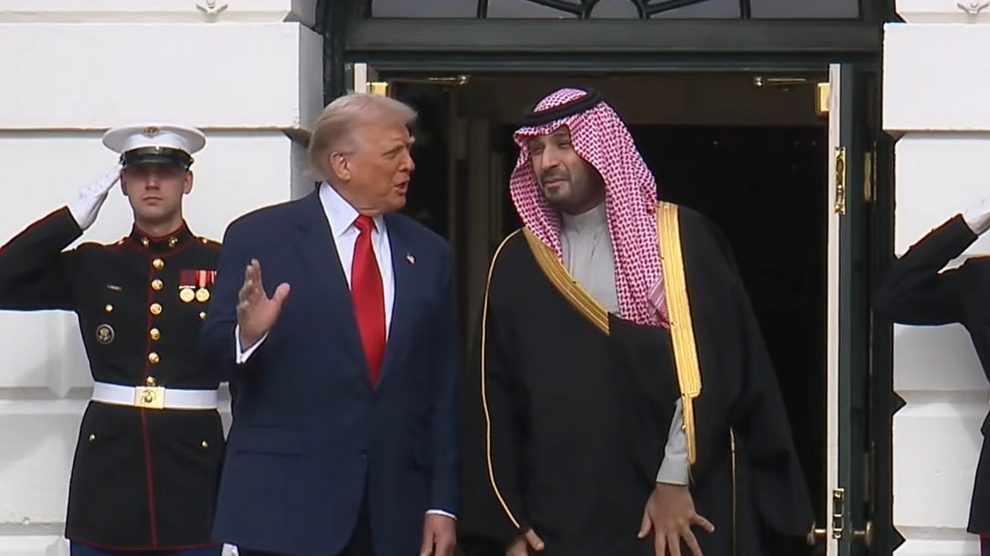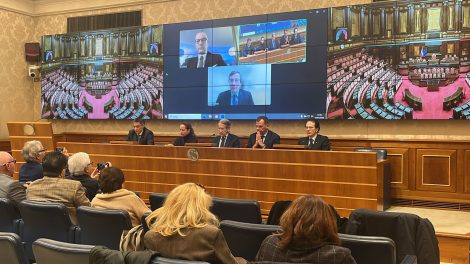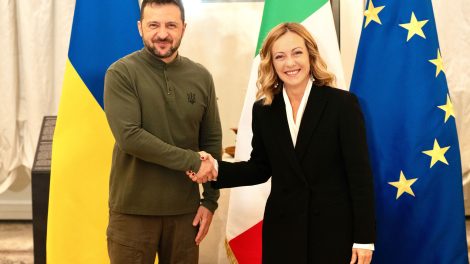The Gaza cease-fire has reopened diplomatic channels frozen for two years. For Washington, it is a chance to rebuild a measure of regional balance; for Riyadh, a step toward consolidating its ambition to become a global logistics hub. IMEC could become the framework where these converging interests are translated into policy.
Hussain’s analysis for the Atlantic Council underlines that the Crown Prince’s visit to the United States is the first meaningful moment to restart political discussions on the corridor. And without Saudi participation, IMEC simply cannot advance.
Context: IMEC was launched at the G20 Summit in New Delhi in 2023 by India, Saudi Arabia, the UAE, the United States, the European Union, France, Germany, and Italy.
- The project froze after the October 7 Hamas attacks: the Gaza conflict disrupted all regional normalization dynamics, including the Israeli–Saudi track.
- After a year of stalemate in 2024, only in spring 2025 did both political and business actors show renewed interest in pushing the project forward.
- Meanwhile, the eastern leg of the corridor (India–UAE) continued to develop through pragmatic geoeconomic connections; the Euro-Mediterranean portion remained halted, constrained by security and political factors — from the regional war dynamics to the impossibility of rapidly advancing Saudi–Israeli normalization.
- “The corridor that once symbolized economic integration became a victim of regional instability,” Hussain writes.
Hussain proposes a critical step: establishing the IMEC Secretariat in Riyadh, formally recognizing Saudi Arabia’s central role in the project’s governance.
What’s at stake for Riyadh:
- Strengthening Vision 2030 as a global connectivity platform.
- Repositioning itself at the center of US–Middle East dialogue.
- Creating political conditions for resuming the normalization track with Israel — which MbS has tied to a credible pathway toward a two-state solution.
- Securing an institutional role in designing and developing the corridor.
- The Washington visit is the moment where these elements can be discussed, even if not yet formalized.
What it means for Italy? Italy views IMEC as a strategic economic infrastructure, not merely a geopolitical project.
- Italy’s three lines of engagement — outlined by Italian Special Envoy Ambassador Francesco Maria Talò in a Decode39’s interview — are:
- Domestic: inter-ministerial coordination and active involvement of the private sector.
- European: a Team Europe approach aligned with Brussels.
- International: continuous dialogue with Gulf partners, India, and the United States.
Key points for Rome:
- Trieste is a candidate to become the European terminal of the corridor.
- IMEC is embedded within the Global Gateway framework.
- Italy–Saudi cooperation is expanding: the Foreign Ministers’ joint declaration in August broadens bilateral coordination on Indo-Mediterranean connectivity.
- The UAE also plays an analogous role in this architecture, as noted by Ambassador Abdulla Ali AlSubousi.
The political dynamics. Hussain identifies the main obstacles:
- An incomplete Saudi–Israeli normalization track.
- An undefined multilateral governance structure.
- The absence of designated national envoys in several partner states.
- The lack of an operational secretariat.
But today the incentives are stronger:
- “For Washington, reengaging Riyadh is critical not just for the corridor’s viability but also for strengthening its long-term strategic foothold in the Middle East.”
- “For Saudi Arabia, participation in IMEC aligns with Vision 2030 — the Kingdom’s blueprint for economic diversification and infrastructure-led growth.”
- As the Middle East’s largest economy, Saudi Arabia plays a central role in shaping connectivity and trade frameworks.
- The EU seeks to diversify routes and supply chains.
- Italy sees an opportunity to strengthen exports, logistics, and international projection by leveraging its Mediterranean centrality.
What we’re watching:
- Whether the IMEC file will emerge in the aftermath of MbS’s visit to Washington.
- Whether Hussain’s proposal to create an IMEC Secretariat in Riyadh will gain traction.
- “Reviving the corridor aligns with Saudi Arabia’s aspirations to become a global logistics hub, bridging Asia, Africa, and Europe through its strategic geography,” Hussain notes.





